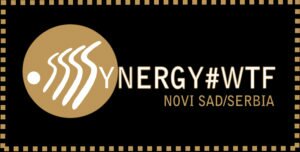October 4, 2017 – Gallery Matica srpska, from 10 am to 2 pm
Minority language – theatre language – minority theatre
International Symposium
(Dialogue is held in English, Russian and Serbian.)
These topics are suggested for discussion:
– Communities we come from are characterised by cultural diversity in the demographic, national, confessional and linguistic sense. With the instruments of the state of law as well as a set of philosophical, ethical principles the said diversity is supported, developed, kept in stagnation or perhaps undermined by administrations in our respective states?
-Theatre is still one of the major instruments and mirrors of any national culture, but theatre is also a form of communication that uses not only a national language, but metacommunicative codes of the (diverse) narrower and wider creative environment. Spoken language is the central platform and an unavoidable instrument of theatre. It is a known fact that it is not the only one, and that as one of the conveyors of emotional, intellectual and ethical content its significance in a stage event has been undergoing many transformations and has had a variety of uses. What is also interesting is the problem of using (or modification) of a linguistic standard in diasporic theatre. Generally, is there a standardised artistic speech, where is it created and is it spoken as such throughout the creative (theatrical) linguistic community? What is the role and power of theatre today in regard to the preservation and development of verbal competences?
-Is there minority theatre or just different paths? We consider legitimate both integrative efforts and segregative determination of one’s own path, since intercultural orientation does not preclude a responsibility for a permanent development of a narrower cultural identity, and in the present era, even the most hermetical isolation does not prevent influences from the world around us whose integral part we are.
-Theatre is a place where paradigms of values are exchanged, a place of dialogue between those on the stage and those in the auditorium about issues relevant today. But theatre also initiates a dialogue (mainly a silent one) in the auditorium. Audiences are no homogeneous communities either in regard to aesthetic requirements or in regard to worldview on values, even when they are ethnically definable. By definition, are minority theatres supposed to tackle issues acute only in their narrower socio-cultural environment or they are entitled to theatrically thematise problems relevant to the entirety of the milieu they live in, perhaps the majority entity or another minority community?
Symposium participants:
Maja Morgenštern, actress (Bucharest/Romania)
Irena Urbič, journalist, theater expert (Koper/Slovenia)
Šaban Nadži, General Manager of NU Turkish theater Skoplje/Macedonia
Milan Rus, General Manager of Serbian theater in Hungary(Budapest)
Laslo Šandor, professor at the University of Arts (Novi Sad/Serbia)
Kasjenov Jerkin Tleugazinovič, General Manager of Russian academic drama theater “Maksim Gorkiy” (Astana/Kazakhstan)
Ina Tafler, art director of german theater from Bolcana (Italy)
Lilija Vitaljevna Jegoročkina, vice-resident of Association of Crimea Drama Artists (Crimea)
Atila Keresteš, director, art director of troop “Mikloš Tompa” (Targu Mures/Romania)
Atila Gašparik, manager of NP from Targu Mures (Romania)
Atila Pal, director of hungarian drama from Targu Mures (Romania)
Valentin Vencel, General Manager of Novosadskog pozorišta/Ujvideki Szinhaz (Novi Sad/Serbia) – host of the symposium
Dragana Varagić, actress, Belgrade/Serbia – conferencing the symposium
